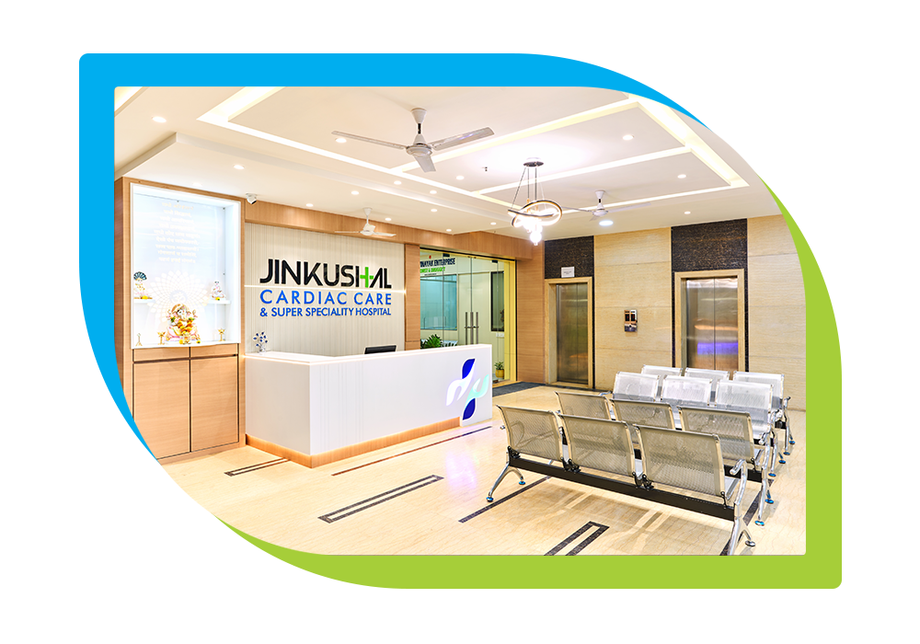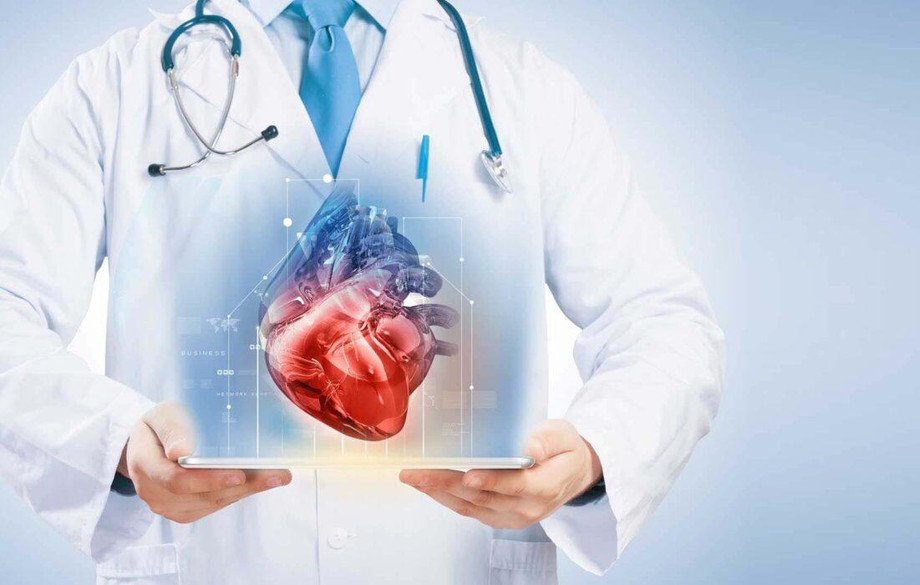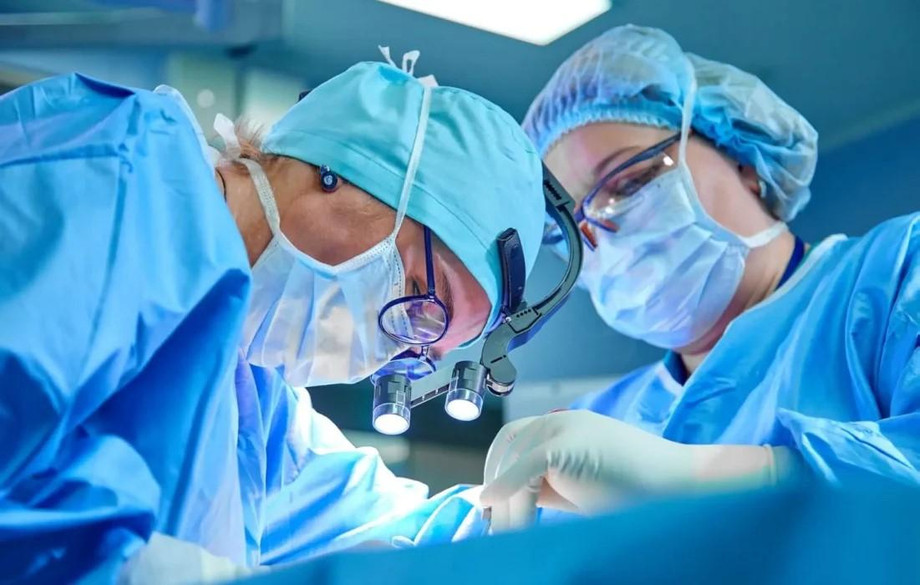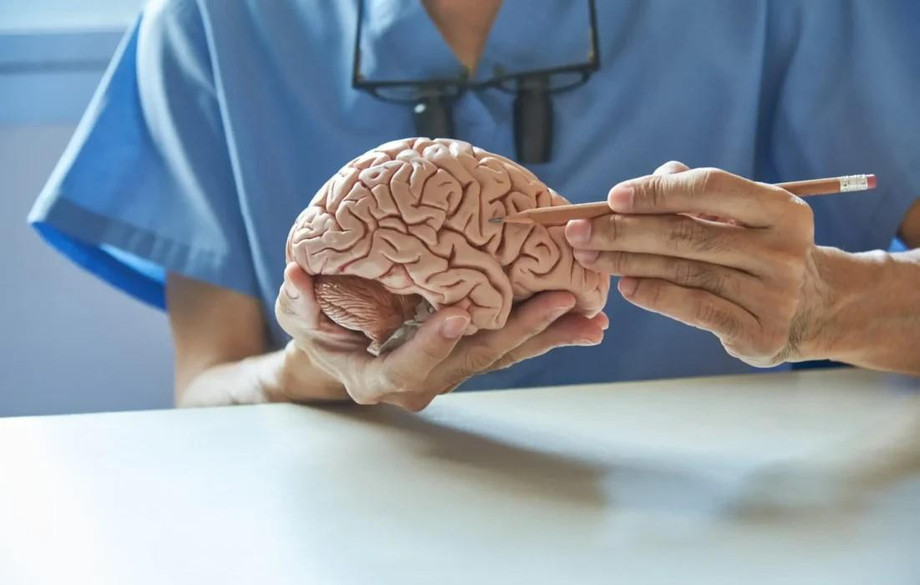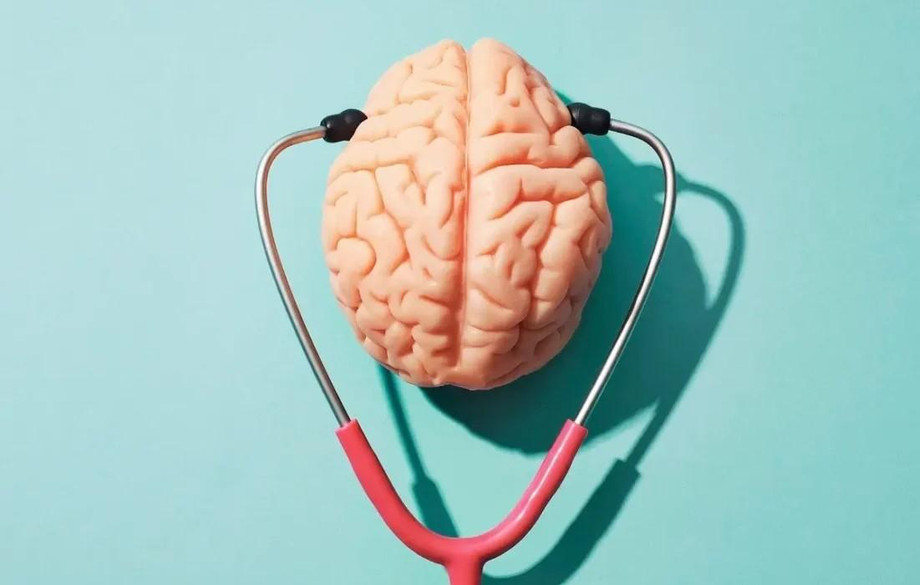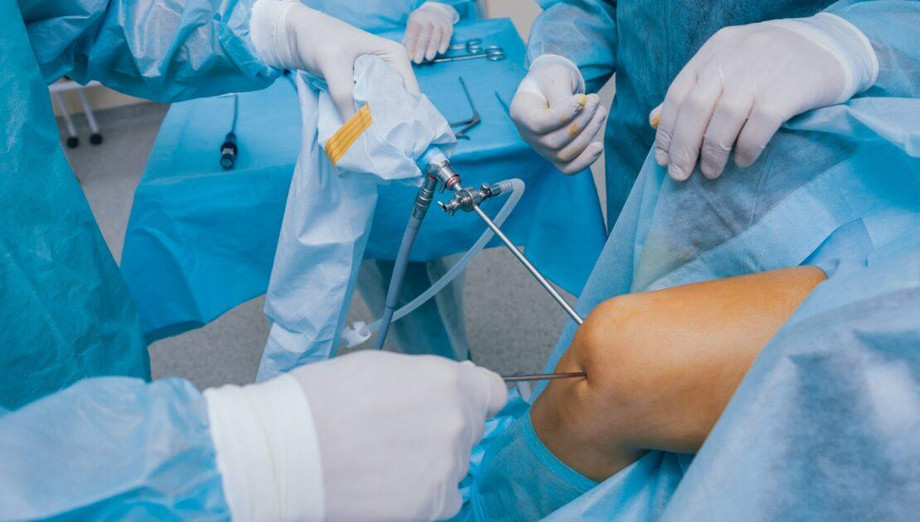HOME
Superspeciality Hospital in Thane
Jinkushal Cardiac Care
Jinkushal Cardiac Care and Superspecialty Hospital is a full-fledged multi-specialty hospital with 30 beds out of which 7beds are dedicated for ICU. It is state of art infrastructure equipped with all high end machines and instruments. The hospital has a CATHLAB which is one of its kind and has inbuilt CT scan and AI which makes it best for treating emergency cases of acute paralysis and heart attack, it also has two Major OTs and a Supramajor OT for cardiac cases.
ABOUT HOSPITAL
JINKUSHAL CARDIAC CARE & SUPERSPECIALITY HOSPITAL
You've made this image private, some users won't be able to view it.
Jinkushal Cardiac Care and Superspecialty Hospital is one of the tertiary care center in the heart of city, Thane. This hospital is situated on Ghodbunder Road making easy access through the most busy and upcoming route to connect Mumbai and Gujrat.
The founder of the hospital Dr. Mayur Jain. He is an ex alumni of Sir JJ hospital Mumbai and is a DM cardiologist by education. He had a vision to have a center with ultra-Modern technology where people from all backgrounds could receive advanced and best in class facilities at an affordable range.
Jinkushal Cardiac Care and Superspecialty Hospital is a full-fledged multi-specialty hospital with 30 beds out of which 7beds are dedicated for ICU. It is state of art infrastructure equipped with all high end machines and instruments.
The hospital has a CATHLAB which is one of its kind and has inbuilt Ct scan and AI which makes it best for treating emergency cases of acute paralysis and heart attack, it also has two Major OTs and one Supramajor OT for cardiac cases. It has in house USG, X-ray, Dialysis unit, pharmacy and pathology.
Our aim is to treat the patients with minimum healing time and also providing operating doctors an ease to perform their procedures.
Experience and rich knowledge with recent updates is a characteristic feature of our healthcare team. Our team is dedicated towards serving with compassion and dignity where we do not discriminate between any patients.
We aim to provide every patient equal care and good health to build better quality of life.
At this hospital while you are at hospital you have a feeling of being at home.
DEPARTMENTS
Cardiology
t.
The Cardiology Department in Jinkushal Cardiac Care specialize in the diagnosis, treatment, and prevention of heart and cardiovascular diseases. Our team of cardiologists, nurses, and technicians are highly trained and experienced in the field of cardiology. We are dedicated to providing exceptional care and working together to deliver the best possible outcomes for our patients.
Services: We offer a wide range of services, including:
Diagnostic Tests: We use state-of-the-art technology to perform a variety of diagnostic tests, including electrocardiograms (ECGs), echocardiograms, stress tests, Holter monitors, and more.
Interventional Procedures: Our interventional cardiology team provides minimally invasive procedures to treat various heart conditions, including angioplasty, stenting, and cardiac catheterization.
Electrophysiology: Our electrophysiology team specializes in the diagnosis and treatment of arrhythmias and other electrical disorders of the heart. We offer procedures such as pacemaker implantation, defibrillator implantation, and ablation therapy.
Heart Failure Management: Our team works closely with patients to manage heart failure through medications, lifestyle changes, and advanced therapies such as ventricular assist devices (VADs) and heart transplantation.
Conditions Treated: We treat a wide range of heart and cardiovascular conditions, including:
- Coronary artery disease
- Heart attack
- Arrhythmias
- Heart failure
- Valve disease
- Aortic aneurysm and dissection
- Peripheral artery disease
- Hypertension
Our Approach
At the Cardiology Department, we believe in a patient-centered approach to care. We work closely with our patients to develop individualized treatment plans that meet their unique needs and goals. We strive to provide compassionate care, while utilizing the latest research and technology to achieve the best possible outcomes.
Cardiac Surgery
You've made thi image private, some users won't be able to view it.
Our cardiac surgery department in Jinkushal Cardiac Care is staffed by a team of highly skilled and experienced surgeons, nurses, and support staff who are dedicated to providing world-class care to patients with heart conditions. We use the latest medical technology and techniques to provide the best possible outcomes for our patients.
Our services include a range of procedures, including:
- Coronary artery bypass grafting (CABG)
- Valve repair or replacement surgery
- Aortic surgery, including aneurysm repair and dissection surgery
- Minimally invasive cardiac surgery
- Ventricular assist device (VAD) implantation
- Heart transplantation
Our team of experts works closely with patients to develop individualized treatment plans that are tailored to their specific needs. We also provide comprehensive post-operative care to ensure that patients have the best possible recovery.
Our Facilities
We understand that undergoing cardiac surgery can be a stressful experience, which is why we prioritize patient comfort and well-being throughout the entire process. Our state-of-the-art facilities and patient-focused approach help to ensure that our patients feel supported and cared for at all times.
If you or a loved one is in need of cardiac surgery, we encourage you to reach out to our team for a consultation. We are committed to providing the highest quality care to our patients and look forward to helping you achieve optimal heart health.
Neurosurgery
You've made this image private, some users won't be able to view it.
Neurosurgery Department of our Jinkushal Cardiac Care is dedicated to providing exceptional care for patients with neurological disorders, conditions, and injuries. Our team of highly skilled neurosurgeons and healthcare professionals work together to ensure the best possible outcomes for our patients.
Our Services:
Brain surgery: We provide a comprehensive range of brain surgery services, including tumour removal, epilepsy surgery, cerebrovascular surgery, skull base surgery, and minimally invasive surgery.
Spine surgery: Our spine surgery services include spinal cord tumour removal, spinal cord stimulation, and spinal fusion surgery for conditions such as degenerative disc disease and herniated discs.
Peripheral nerve surgery: We offer peripheral nerve surgery services for conditions such as carpal tunnel syndrome, peripheral nerve tumours, and nerve injuries.
Functional neurosurgery: Our department provides functional neurosurgery services for conditions such as Parkinson’s disease, dystonia, and essential tremors.
Paediatric neurosurgery: We provide specialized care for children with neurological conditions, including congenital brain malformations, hydrocephalus, and spina bifida.
Our Facilities:
Our department is equipped with state-of-the-art facilities, including advanced imaging technology, neurophysiology equipment, and neuro-navigation systems. We also have a dedicated neuro-intensive care unit, NICU for patients who require post-operative care and monitoring.
Our Approach:
At the Neurosurgery Department, we take a patient-centered approach to care. We understand that every patient’s condition and needs are unique, and we strive to provide individualized care that meets their specific requirements. Our team of experienced neurosurgeons works closely with other specialists to provide comprehensive care to our patients.
We understand that seeking medical care can be stressful, and we strive to create a welcoming and supportive environment for our patients. We are committed to providing compassionate care and support to our patients and their families throughout their treatment journey.
Neurology
You've made this image private, some users won't be able to view it.
The Neurology Department in Jinkushal Cardiac Care is specializes in diagnosis, treatment, and management of conditions affecting the nervous system. We are a team of highly trained and experienced neurologists, nurses, and support staff dedicated to providing the best possible care to our patients.
Our Services:
Diagnosis and treatment of neurological disorders:
We specialize in the diagnosis and treatment of a wide range of neurological disorders, including but not limited to, epilepsy, migraine, stroke, Parkinson’s disease, multiple sclerosis, neuropathies, and movement disorders.
Neurological imaging:
We have state-of-the-art diagnostic imaging equipment to help diagnose and treat neurological conditions.
Neurological rehabilitation:
Our rehabilitation program helps patients with neurological disorders to regain function, independence, and quality of life.
Clinical trials:
We are involved in clinical trials that provide access to cutting-edge treatments for neurological disorders.
Research:
Our department is involved in ongoing research aimed at improving the understanding, diagnosis, and treatment of neurological disorders.
If you or a loved one is experiencing neurological symptoms or have been diagnosed with a neurological condition, we are here to help. Please contact our department to schedule an appointment or to learn more about our services.
BLOGS
Total Knee Replacement : Restoring and Quality of Life
Total Knee Replacement (TKR), also known as total knee arthroplasty, is a surgical procedure that has transformed the lives of millions of people around the world. It is a medical marvel that offers a second chance at mobility and pain-free living for those suffering from severe knee joint damage. In this blog, we will delve into what TKR is, why it is needed, the benefits it offers, and its significance in improving the quality of life for individuals.
What is Total Knee Replacement (TKR)?
Total Knee Replacement (TKR) is a surgical procedure in which a damaged or diseased knee joint is replaced with a prosthetic implant. This implant mimics the functions of a healthy knee joint, allowing patients to regain lost mobility and alleviate pain. The surgery is typically performed under general or regional anesthesia, and it involves removing damaged cartilage and bone from the knee joint and replacing them with artificial components made of metal and plastic.
Why It is Needed?
TKR is needed when a person’s knee joint becomes severely damaged or diseased, often due to conditions such as osteoarthritis, rheumatoid arthritis, or post-traumatic arthritis. These conditions can cause the knee joint to deteriorate over time, resulting in excruciating pain, limited range of motion, and a significant reduction in the quality of life.
Here are some common reasons why TKR may be necessary-
- Chronic Pain: Persistent knee pain that limits daily activities and disrupts the individual’s overall quality of life.
- Loss of Mobility: Severe joint damage can lead to a loss of mobility, making it difficult to perform basic functions such as walking or climbing stairs.
- Decreased Quality of Life: When knee pain and limited mobility impact a person’s ability to enjoy life, participate in physical activities, or engage in social interactions.
- Failed Non-Surgical Treatments: When conservative treatments like physical therapy, medications, and lifestyle changes no longer provide relief.
Benefits of Total Knee Replacement (TKR)
Total Knee Replacement offers a multitude of benefits for individuals suffering from knee joint problems-
- Pain Relief: One of the most immediate and significant benefits is the relief from chronic knee pain, allowing individuals to enjoy an improved quality of life.
- Improved Mobility: TKR restores mobility, enabling patients to walk, climb stairs, and engage in physical activities they may have avoided for years.
- Enhanced Functionality: Patients regain the ability to perform daily tasks independently, such as bending, kneeling, and squatting.
- Increased Quality of Life: TKR often leads to an overall improvement in the patient’s well-being, including increased social interaction and a return to hobbies and activities they enjoy.
- Long-term Durability: Modern TKR implants are designed to last for many years, providing lasting relief and functionality.
- Better Joint Stability: The prosthetic components provide better joint stability, reducing the risk of falls and injuries.
Conclusion
Total Knee Replacement (TKR) is a life-changing procedure that offers hope and relief to individuals suffering from debilitating knee joint conditions. It is a remarkable medical advancement that not only alleviates pain but also restores mobility and enhances the overall quality of life. While TKR is a major surgery, the benefits far outweigh the risks for many patients, allowing them to regain their independence and enjoy a more active and fulfilling life. If you or a loved one is facing severe knee joint problems, consult with a healthcare professional to explore whether TKR could be the right solution for you.
Jinkushal Cardiac Care & Superspeciality Hospital is your trusted destination for top-tier healthcare. Our team comprises highly experienced and eminent Joint Replacement Surgeons who specialize in cutting-edge procedures. We pride ourselves on performing the most advanced joint replacement surgeries, ensuring optimal outcomes for our patients. If you or a family member is grappling with the debilitating effects of knee pain, hindering your daily life, it’s time to pay us a visit. Our world-class orthopedic treatments and expert advice can pave the way for a pain-free, active, and happy life. Don’t compromise on your well-being; seek guidance from the best Joint Replacement Surgeons in Thane at Jinkushal Cardiac Care & Superspeciality Hospital. Your journey to a healthier and more fulfilling life begins here
Post Angioplasty care
Angioplasty is one of the most common and successful treatment options for heart disease. It is a procedure in which blocked blood vessels are opened to supply blood to heart muscles. Angioplasty in heart attack treatment saves valuable lives. Generally cardiologist performs Angioplasty immediately after heart attack. Angioplasty is not only relieves chest pain but also reduces the chance of another heart attack. Post angioplasty care is basically divided into three parts: • Immediate care • Diet • Exercises
Immediate Self Care after Angioplasty Surgery
- 1. In general, people who have angioplasty can walk around within 24 hours after the procedure. Complete recovery takes a week or less. Keep the area where catheter was inserted dry for 24- 48 hours.
- If the catheter was in through groin a. Walking short distance on a flat surface is okay. b. Limit going up and down on stairs to around 2 times a day for first 2-3 days. c. Do not strain yourself by doing any hard work, driving or exercising heavily until your doctor allows you to do so. d. Avoid any sexual activities for 2-5 days. Ask your doctor when will it be okay to resume.
- If the catheter was in through arms or wrist a. Do not lift anything heavy with that arm b. Avoid any heavy pushing, pulling or twisting with that arm.
- You will have to take care of your puncture site a. Your doctor will tell you how often you need to change the dressing b. If your site bleeds or swells up, lie down and put pressure on it for 30 minutes and please consult your doctor regarding the same.
Healthy Diet
“There is no single diet that is right for everyone”. Your health diet should include: 1. Lots of fruits(avoid fruit juice) fresh vegetables, whole grains, sprouts oats, beans( for diabetic consult your diabetologist but in general you must avoid banana, litchi, grapes, mango, custard-apple, chiku, potato and arbi ) 2. Nuts such as almond (4-5/ day), walnuts 2-3/day and peanuts handful of without oil, butter and salt. 3. Eat less oily food. 4. If using oil in food preparation use oils which are healthy for heart like peanut or groundnut oil, olive oil, ricebran oil, etc these oil have more MUFA content which helps to lower bad cholesterol. 5. Do not add extra salt when food on table. 6. Eat small portions and in between meals have salad or fresh fruits whenever hungry. 7. Avoid sugar, sweets and artificial sweetners ( splenda, equal, stevia, sugar free these are equally harmful). 8. Avoid refined flour (maida) and its products like white bread, pasta, pizaa, etc. 9. Avoid packaged foods like wafers, namkeens. 10. Avoid bakery products like biscuits, cakes, pastries. 11. Avoid processed red meats and poultry. 12. Avoid canned and jar food. 13. Avoid aerated drinks like cocacola, pepsi instead consume fresh lime water, butter milk, coconut water. 14. Eggs can be taken without deep frying and without the yolk. 15. Home made food is the best food 16. Taking your dinner at least 3 hours before sleeping. 17. Eat food, not too much, mostly prefer plants.
Exercises
Exercising Immediately After an Angioplasty:
- Rest for a minimum of one to two days after your procedure. This means no heavy lifting, no aerobic activity, or any activity that would require you to raise your heart rate significantly. Normal, day-to-day activities are appropriate for the most part Angioplasty. Be careful with activities like carrying in heavy groceries, cleaning, gardening, etc. that would be of a higher intensity. 2. Start with lifestyle activity after 2-3 days of rest Lifestyle activities (or baseline activities) are those exercises that are a part of your normal daily routine. These are the activities that get you “up and moving.” For example, taking the stairs, parking farther away, grocery shopping, gardening, etc are all activities that will get you up, moving and increase your heart rate. Limiting yourself to daily normal activity instead of starting structured exercise will help you build endurance for later long term exercise regime
Safe Exercises Routine for Long-Term
- Aim for 150 minutes of aerobic exercises every week. As long as you’re cleared by your doctor, you should be aiming for this amount after your angioplasty as well. 150 minutes is not a goal that you need to meet immediately. Angioplasty You may only be able to meet this goal after a few weeks or months of daily/ lifestyle activity 2. Include two to three days of weight training. After you’ve gotten comfortable with aerobic exercise, start thinking about including some weight training. This will complement your cardiovascular training. Do not weight train the same muscles two days in a row. Aim to workout for about 20 minutes total in length. Include a series of exercises so that each major muscle group is worked. Avoid carrying weight more than 10 Kg if your heart function is low. Note that if you do have some chest pains or did previously, overhead exercises (like shoulder presses) may make you have some chest pains or feelings of tightness. Avoid these if they are bothersome or produce symptoms. 3. Be mindful of more extreme weather conditions. Although most exercises in general will be safe for you after your angioplasty, some physicians recommend staying indoors when there is more extreme weather. Some weather conditions, like overly hot, humid or very cold days can produce symptoms like chest pain, difficulty breathing or chest tightness. It’s recommended to workout or exercise indoors if the temperature is below 20°F (-6°C). Also stay indoors if the humidity is above 75% or the temperature in general is above 80°F (26.6°C). Keep an eye on the weather. Note which days have very hot or cold temperatures and make plans to be safe and stay indoors instead. 4. Be mindful of side effects or symptoms during activity. Usually, an angioplasty will help relieve cardiac-related symptoms (like chest pain); however, you still need to be mindful of how you’re feeling during and after activity.
Stop exercising and see your doctor if you experience
- Chest pain
- Chest tightness
- Shortness of breath or difficulty breathing
- Wheezing
- Dizziness or light-headedness
- Palpitations
- Discomfort in your jaw, arm, shoulder, back or stomach
- Nausea
- Check in with your doctor regularly. After your angioplasty, it’ll be recommended that you follow up.
Incorporating Safe Exercises After an Angioplasty
AMOUNT OF EXERCISE ALLOWED VARIES DEPENDING ON YOUR HEART FUNCTION.
PLEASE CONSULT YOUR CARDIOLOGIST FOR EXACT AMOUNT OF EXERCISE ALLOWED. 1. Incorporate a 30 minute walk most days. One very safe and frequently recommended exercise is a 30 minute brisk walk. This is a great exercise for most angioplasty patients to start with. 2. Try other aerobic exercises like jogging, biking or swimming. If you’ve got the 30 minute walk down and want to try other types of aerobic activity, try some of the following: Jogging. While this might sound like an exercise that raises your heart rate too high, it is a type of cardio exercise that you can work towards over time. Jogging burns more calories than running and works your heart harder. This helps build better aerobic fitness. Swimming. This is another great cardio exercise. Angioplasty It involves your full body, but is easy on the joints and you can make it low intensity as needed. Plus, the water keeps your body cooler which keeps your heart rate lower. Cycling.. Like swimming, it’s low impact and you can make the intensity lower if needed. 3. Do yoga and meditation. Since strength training is a good type of exercise to include along with cardio, you need to find ways to include this. Yoga is a great low impact exercise that can help strengthen without raising your heart rate high. Yoga is a great exercise to get into after any health issue, but especially after a cardiac procedure like an angioplasty. The great thing about yoga is that it can be good for strength training, but also trains your breathing and can help relax and de-stress which might be useful after having a cardiac procedure like an angioplasty.
General tips
- Wait for at least 90 minutes after eating to start with your exercise 2. Take 5 minutes to warm up before aerobic activity 3. Start slowly and increase your activity level gradually 4. Stay hydrated and dress according to weather 5. Don’t sit down immediately after exercise; take 5 minutes to cool down you may feel light headed or have heart palpitations.
When can you join work?
If you had a planned (non-emergency coronary angioplasty, you should be able to return to work after a week if you work is not very energy demanding( heavy weight lifting or straneous) If you had an emergency angioplasty following a heart attack it may take longer to recover fully and return to work.
“Best person to guide you is your doctor”
SPECIAL INSTRUCTIONS
- DO NOT STOP ANY MEDICINE WITHOUT ASKING YOUR DOCTOR ESPECIALLY ASPIRIN AND OTHER ANTIPLATELETS LIKE CLOPIDOGREL, PRASUGREL AND TICAGRELOL. STOPPING THESE DRUGS CAN LEAD TO STENT THROMBOSIS AND HEART ATTACK. • DO NOT IGNORE ANY KIND OF CHEST PAIN – SEE YOUR DOCTOR IMMEDIALTELY AND GET AN ECG. • AVOID STRAINING FOR STOOLS. THIS MAY PRECIPITAE HEART FAILURE. PLEASE TAKE SYP DUPHALAC 30 CC STAT IF YOU ARE HAVING CONSTIPATION AND SEE YOUR DOCTOR. • DO NOT SMOKE. THE RISK DECREASES ONLY AFTER YOU QUIT SMOKING FOR MORE THAN A YEAR. • AVOID ALCOHOL. • 6 HOURS OF SOUND SLEEP IS A MUST. • THE AMOUNT OF EXERCISE ALLOWED VARIES FROM PATIENT TO PATIENT. GENERALLY AT FIRST POST ANGIOPLASTY VISIT AT 7 DAYS THE DOCTOR WILL ADVICE YOU THE AMOUNT OF EXERCISE. ROUTINE ANGIOPLASTY PATIENT IS SUPPOSED TO BRISK WALK FOR 30 MIN OR MORE AFTER FIRST 7 DAYS.
- ECG
- 2D ECHO / sos TEE
- Chest X-ray
- PFT (Pulmonary Function Test)
- Angiogram
- CT Scan (Computed Tomography) with TAVI protocol
- TEE (Transesophageal Echocardiogram) if required.
Post TAVI Management?
Following the procedure the patient is transferred in the intensive treatment unit at the hospital, so they can be watched continuously throughout recovery. The hospital stay is expected to last for a couple of days. But normal meals can returned quickly.
When the patient is at back at home, which can happen within a few days dependent on the speed of recovery they must adhere to all prescriptions for medicines, diet activities, pain control and treatment of wounds. Keep track of all scheduled follow-up appointments.
It may take few days to fully recover.
Tips for patients who undergone tavi procedure for faster recovery.
- Following the procedure of TAVI doctor has recommended an anticoagulant medication to stop blood clots. To make sure you’re receiving the correct dose, you should be sure to check your blood frequently.
- Be sure to take recommended walk as prescribed.
- Avoid lifting anything that is heavy, however you are able to perform other activities as normal.
- Request permission from your physician regarding when you are able to take part in hard work or driving, as well as any other type of sexual or sexual activity.
- Tell the doctor right away If you notice any type of bleeding, pain the shortness or even fever.
- Monitor the groin area for signs of swelling, redness or bleeding.
- Maintain an appropriate weight.
- Eat a heart-healthy diet.
- Do not smoke.
Risk Involved during TAVI Procedure?
A growing number of cardiologists are becoming familiar using TAVI and the risk related to it are declining. But, TAVI is a major procedure that requires general anesthesia is necessary and very few TAVI Specialist Cardiologist in Thane Mumbai who do regular TAVI Procedures . The most common risks that are frequently connected to TAVI are the following:
- Bleeding
- Blood vessel damage
- Heart attack
- Stroke due to a decreased blood flow to the brain.
- Kidney failure
- Repair valve failure leading to emergency AVR.
- Complete heart block requiring a pacemaker.
- Heart failure
There could be other risk factors in addition to the risk based on your medical condition. Before you undergo the procedure, you should have a thorough discussion with your Cardiologist in Thane or Mumbai about the subject.
When it is handled by a reputable Interventional Cardiologist in Thane and the proper follow-up of the instructions, patients who have undergone TAVI recover rapidly.
CONTACT US
Want to book an appointment or have any query get in touch with us
Our Contact Details
Address: Second floor, Rosa Vista, opposite Suraj Water park, Kavesar, Ghodbunder road, Thane west - 400607
Telephone no : 022-46015511/022-46015522
Phone no : 9082386200/9222888070/9222888070
Email: info@jinkushalcardiaccare.com

